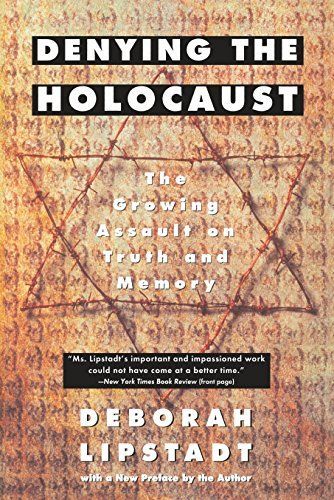
Denying the Holocaust The Growing Assault on Truth and Memory
The denial of the Holocaust has no more credibility than the assertion that the earth is flat. Yet there are those who insist that the death of six million Jews and other persecuted people in Nazi concentration camps is nothing but a hoax perpetuated by a powerful Zionist conspiracy. In this first full-scale history of Holocaust denial, Deborah Lipstadt shows how – despite tens of thousands of living witnesses and vast amounts of documentary evidence – this irrational idea has not only continued to gain adherents but has become an internationally organized movement. Lipstadt argues that this chilling attack on the factual record not only threatens Jews but could dramatically alter the way that truth and meaning are transmitted from one generation to another.
Reviews
Jeni Enjaian@jenienjaian